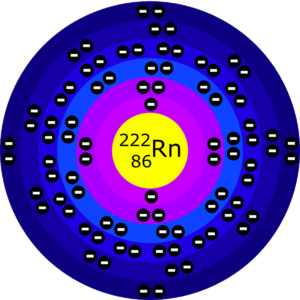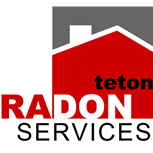
Most people are well-acquainted with the most common types of toxic gases – like carbon monoxide and methane – that can harm human health. But how many of us are familiar with the potentially damaging effects of radon exposure?
If radon poisoning has never crossed your mind, then you’ll want to continue reading. Below, the experts at Teton Radon Services discuss the signs of radon exposure, how the gas affects your health and what you can do to protect yourself. Take a look.
What is Radon? Where Does it Come From?
Radon is a radioactive gas that exists naturally within porous soils. Odorless, tasteless and colorless, radon often goes undetected by homeowners. Because the gas rises naturally from the soil, radon levels are naturally higher in the lower floors of most buildings and can be especially elevated in basement rooms. In fact, experts estimate that one in 15 homes across the United States tests positive for dangerously high levels of this radioactive gas.
Since radon rises naturally from the ground, it can enter your home through even the tiniest of improperly sealed or porous openings, including pipes, drains, walls and foundation cracks. Occasionally, stone building materials and solar heating components within your home may also emit radon. Outdoors, radon dissipates rapidly, but because the gas becomes trapped and accumulates within a building’s walls, it can quickly reach dangerously high levels. Here in Idaho, we are particularly susceptible to radon poisoning as soil levels of radium, thorium and uranium – the elements that break down to produce radon – are higher in our corner of the map.
Is Radon Dangerous?
In a word, YES! Radon is radioactive, which makes it highly dangerous to human health. While radon inhalation was once thought to be beneficial, healthcare experts now acknowledge that continued inhalation of the gas may lead to the development of lung cancer. Not surprisingly, long-term radon exposure is the second leading cause of lung cancer in the United States, eclipsed only by cigarette smoke.
What Are the Symptoms of Radon Gas Poisoning?
Unfortunately, acute radon exposure doesn’t produce any noticeable symptoms. Only after years of exposure will you begin to observe unusual and potentially damaging health symptoms. Long-term radon exposure produces symptoms akin to those of lung cancer.
They include:
• Ongoing chest pain
• Persistent coughing
• Unintended weight loss
• Wheezing
• Coughing up blood
• Persistent coughing
• Unintended weight loss
• Wheezing
• Coughing up blood
Unlike carbon monoxide poisoning or exposure to other dangerous gases, you won’t notice symptoms like fatigue, headache, confusion or dizziness. That’s because radon gas decays rapidly, damaging the cells in your lungs as it breaks down. Over time, this damage leads to cellular mutations that can cause cancer if exposure to the gas is not mitigated. Radon is a stealthy and silent poison, making ongoing radon testing critical for the health of you and your loved ones.
What to Do If You Think You’ve Been Poisoned
If you think you’ve been exposed to radon gas, it’s imperative that you visit your physician for testing. Because radon gas breaks down so rapidly inside the human body, there are currently no tests to detect the presence of the gas in your system. When you visit your doctor to discuss your concerns, you’ll likely be evaluated for the presence of lung cancer.
If you believe your home contains dangerously high levels of radon, it is imperative that you contact a certified radon gas testing company to analyze your home’s levels. If your test results indicate the presence of this dangerous gas, we can install radon mitigation systems which work to limit you and your family’s exposure.
Your Trusted Radon Testing and Mitigation Service Provider
At Teton Radon Services, we’re dedicated to helping you and your family maintain your safety and health. With over 15 years of experience in testing and radon mitigation, we’ve developed a reputation for excellence, and we stand behind our service. If you’ve recently purchased a new home or you’ve never tested your house for radon, contact our knowledgeable team to schedule your in-home testing today.
Call us Today for a FREE Consultation!
